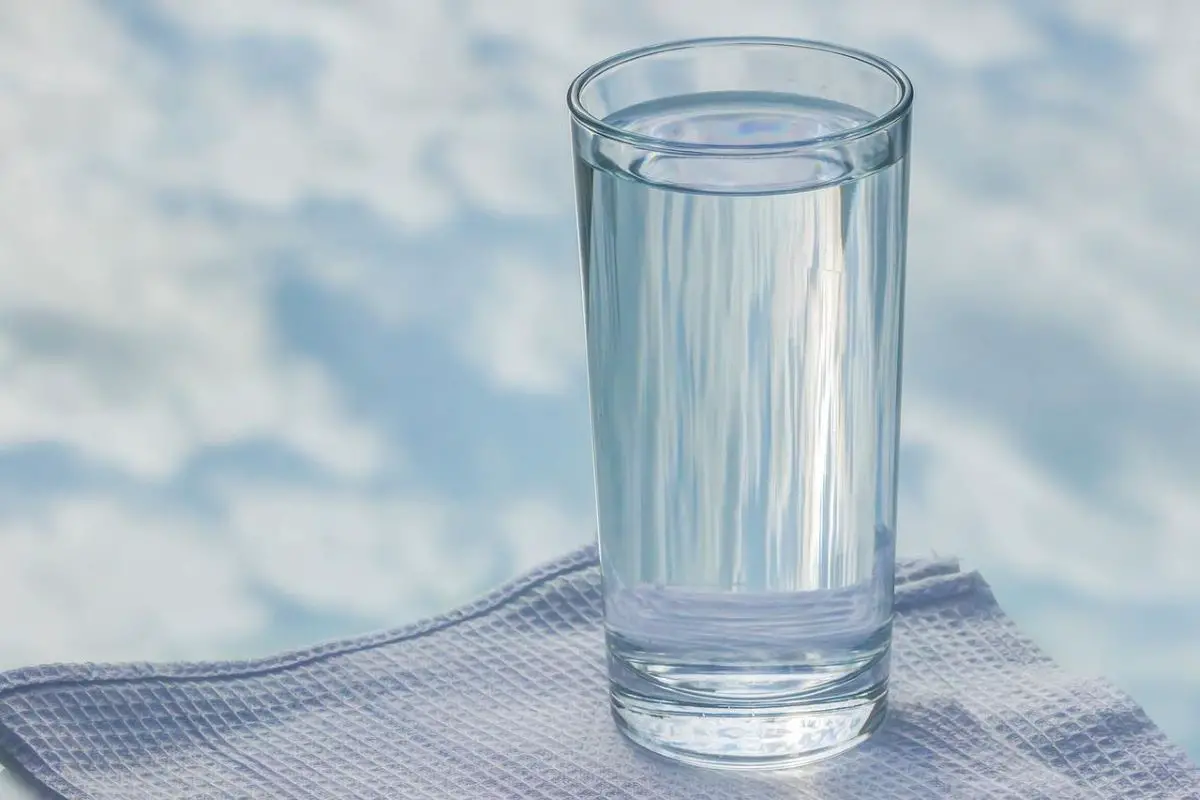If you ever find yourself in the desert, you might be tempted to drink water from a puddle. While that may seem like an easy way to quench your thirst, it probably wise to ask yourself can you drink rain water. While standing water is never going to be completely safe, rainwater is generally cleaner than any other source of water in a drought or desert situation. Let’s talk about why that’s the case and what makes it safer than other options.
Can you drink rain water? The simple answer is “Yes.” But that’s not the whole story.
Rain water is safe to drink, but it will not quench your thirst like bottled or tap water. Some people choose to drink rainwater because they believe it has unique health benefits. However, there is no evidence that drinking rainwater provides any benefits over other types of water.
Rain water contains minerals such as calcium, magnesium, sodium and potassium. These minerals are essential for normal body function but are present in very low amounts in rainwater compared to other sources of water.
Do People Drink Rain Water?
The question can you drink rain water is a common one. The answer is: yes. But the reason why people drink rain water is a little more complex than you might think.
It’s not because they want to be healthier, or because they want to save money—it’s because they have no other choice. In many places around the world, there are not enough clean drinking water sources for everyone who needs it. And even when there are clean water sources available, accessing them can be difficult.
For example, many families live in houses where it’s hard for them to get access to clean water—they may have no running water at all or only have enough for themselves and their family members to use for cooking and bathing purposes only. And even if there are clean drinking water sources nearby, some families may not be able to afford them because they live below poverty level or do not have any income at all! So what do these people do? They turn to rainwater as their primary source of hydration because they don’t have any other choice!
Are There Health Benefits To Drinking Rain Water?
Yes. Rainwater contains a number of minerals that are good for you, including calcium, magnesium and zinc. It also has a higher pH than tap water and so is less likely to contribute to the formation of kidney stones.
The only downside of drinking rainwater is that it can contain a higher amount of nitrates than tap water, which can be harmful if consumed in high quantities.
What Is The Best Way To Purify Rain Water?
The best way to purify rain water is by using a water filter. A water filter is a device that cleans and purifies water, removing any contaminants. There are many different types of filters available on the market today, but they all work in the same way: by passing the contaminated water through a porous medium that traps dirt and other particles.
The best type of filter to use depends on what you want it to do. If you want to remove particulate matter such as dirt and sand, then you should use a sediment filter. You will need to remove dissolved minerals such as calcium or iron, then try using an ion exchange filter. If you want something that can do both, then look into reverse osmosis filters!
Whatever your needs are, there’s no reason not to keep yourself from drinking dirty water when you’re out camping or hiking in nature—just bring along your favorite filtration system and stay safe!
Does The Container In Which You Collect Rain Water Matter?
It depends. If you’re collecting rain water to use for drinking, then yes, it matters a lot. Rainwater is not potable water. In this context, “potable” means drinkable—it’s safe to consume without any risks or adverse health effects. Rainwater is often contaminated with various minerals and chemicals that can make it harmful to drink. This can include salts, metals like arsenic and lead, bacteria and algae, as well as other contaminants like pesticides and fertilizers from nearby farms or lawns.
You should never drink rainwater collected directly from your roof or outdoor surfaces without first treating it using some sort of purification method such as filtration or distillation.
If you’re collecting rainwater for other uses like watering plants or washing dishes, then it doesn’t matter so much what kind of container you use for collecting the water—though there are some things you should look out for when selecting one anyway!
What Is Acid Rain?
Acid rain is water (H2O) that has taken on a pH of less than 5.0. This means that it has become acidic, and it can damage the environment, buildings, and people.
Acidic rain is formed when sulfur dioxide (SO2), nitric oxide (NO), nitrogen dioxide (NO2), and other gases emitted by cars, factories, and power plants mix with other gases in the atmosphere and then fall as precipitation. When these chemical compounds mix with water and form weak acids like carbonic acid or sulfuric acid, they can be harmful to humans and nature, especially lakes and forests.
The most common cause of acid rain is fossil fuel combustion—burning coal to generate electricity or heat homes—such as burning natural gas or oil at home or in a factory.
Is It Safe To Drink Acid Rain?
Acid rain is a type of precipitation that occurs when sulfur dioxide and nitrogen oxides are released into the atmosphere from industrial sources, such as factories. These chemicals react with water vapor in the air to form sulfuric acid and nitric acid, which then fall to earth in the form of rain or snow.
The pH level of acid rain is typically between 2 and 4, whereas normal rainfall has a pH level between 5 and 6. The lower the pH level is, the more acidic it is considered to be.
When it comes to safety, it depends on what you’re drinking it for. If you’re looking for something safe enough to drink without any side effects, there’s no harm in drinking small amounts of acid rain. However, if you want something more substantial than just a sip or two, then it’s probably best to avoid it altogether due to its low pH levels making it very corrosive on your teeth and esophagus lining (the latter being responsible for transporting food from your mouth into your stomach).
Conclusion
It is important to know that the tap water that comes from your faucet first goes through a filtration process to remove harmful contaminants. This purified water then mixes with other chemicals, and other unfiltered sources throughout its journey to the depths of your glass. Given the various chemicals and metals used throughout this process, it is best to be cautious about drinking unfiltered tap water. In conclusion, there are many techniques for filtering rain water. If you have plenty of time and resources, one of these techniques could greatly improve the quality of your drinking water.
You May Like This Article As Well:
Is It Illegal To Collect Rainwater? What You May Not Realize
 Being Human
Being Human





